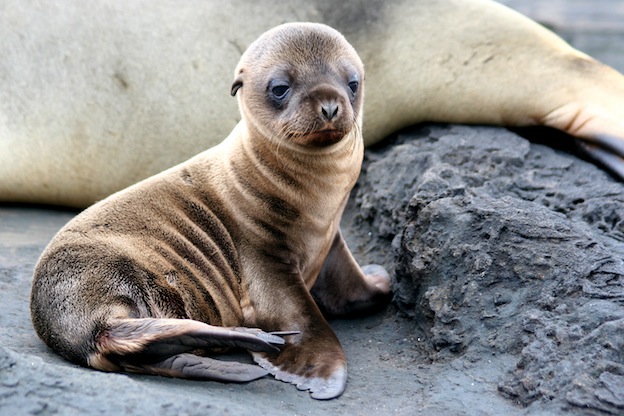
Lately I have been saddened by a series of unfortunate events that have become all to common. These incidents center around one central theme- human interaction with wildlife. From bison making their way into cars at Yellowstone National Park, Gorilla’s being shot at the Cincinnati Zoo, and even in my own backyard, Sea Lion’s being “rescued” for crying for their mothers or “looking sad” on local beaches. Most often, if not always, the wildlife suffers at the hands of human intervention. Now I am not going to debate here on the value of a human life (as was the potential case in Cincinnati). I don’t care to open that can of worms. However, I would like to make a request that people take a second and review their actions in regard to wildlife and the natural world. And check yo selves.
For your pondering, an excerpt from Paul W. Taylor’s “The Ethics of Respect for Nature”.
“A life-centered system of environmental ethics is opposed to human centered ones precisely on this point. From the perspective of a life-centered theory, we have prima facie moral obligations that are owed to wild plants and animals themselves as members of the Earth’s biotic community. We are morally bound (other things being equal) to protect or promote their good for their sake. Our duties to respect the integrity of natural ecosystems, to preserve endangered species, and to avoid environmental pollution stem from the fact that these are ways in which we can help make it possible for wild species populations to achieve and maintain a healthy existence in a natural state. Such obligations are due those living things out of recognition of their inherent worth. They are entirely additional to and independent of the obligations we owe to our fellow humans. Although many of the actions that fulfill one set of obligations will also fulfill the other, two different grounds of obligation are involved. Their well-being, as well as human well-being, is something to be realized as an end in itself.
If we were to accept a life-centered theory of environmental ethics, a profound reordering of our moral universe would take place. We would begin to look at the whole of the Earth’s biosphere in a new light. Our duties with respect to the “world” of nature would be seen as making prima facie claims upon us to be balanced against our duties with respect to the “world” of human civilization. We could no longer simply take the human point of view and consider the effects of our actions exclusively from the perspective of our own good.”
(There is also a book if you are interested…)
#rantover







I find this more difficult than your article makes it sound. When I went to the galapagos, I saw starving baby sea lions; their elder siblings pushed them away from the teat. What would an ethic that viewed their lives as important have me do? How would that ethic have me respond to injured animals, parasitized animals, or animals with birth defects?
The sort of ethics described in the quotes above doesn’t seem well worked out to me. Why is it an ethical goal to allow “wild species populations to achieve and maintain a healthy existence in a natural state”? Why does the ethic apply, for instance, to populations instead of individuals, when only individuals can suffer? Why is a ‘natural state’ viewed as good, when it involves no medical care, no reliable food or water supply?
How, in fact, can you get to an ethic like this except by viewing living, suffering creatures as mere interchangeable members of something abstract – species, population – which matters only to humans?
I agree that the issue is quite complex.
I bring up the points only to get people thinking about how they interact with nature. Often times the animals “problems” are anthropomorphised and humans feel as if they must intervene. Many times leading to the detriment of the animal itself. Humans tend to try and fix things (usually things that do not need fixing) to alleviate their own conscious without first thinking of the well being of the animal. Or alternatively the animal is punished for the mishap of the human.
In light of several recent events, I just want people to consider a broader view (less anthropocentric and more biocentric) on how nature works and our role in it.